Theology Matters:
Why Dispensationalism Is Not Christian & Is Bad for White Americans,
Part 1
Morris van de Camp
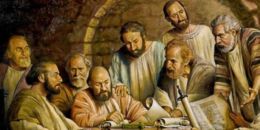
The Council of Jerusalem is the decisive meeting in which the separation between Christians and Jews was ratified.
2,552 words
Part 1 of 2 (Part 2 here)
But when Peter came to Antioch, I had to oppose him to his face, for what he did was very wrong. When he first arrived, he ate with the Gentile believers, who were not circumcised. But afterward, when some friends of James came, Peter wouldn’t eat with the Gentiles anymore. He was afraid of criticism from these people who insisted on the necessity of circumcision. As a result, other Jewish believers followed Peter’s hypocrisy, and even Barnabas was led astray by their hypocrisy.
When I saw that they were not following the truth of the gospel message, I said to Peter in front of all the others, “Since you, a Jew by birth, have discarded the Jewish laws and are living like a Gentile, why are you now trying to make these Gentiles follow the Jewish traditions? — Paul’s Letter to the Galatians
See also: “Christian Zionism,” “The Ongoing Revolution in American Protestantism,” “Malign Social Contagions,” “The Good Book from an Ethnonationalist Perspective,” “A Bit More of the Good Book,” “Door Bars and Bolts,” “Race and the Bible,” “America in Israel, Israel in America…
Theology matters, and the theological concepts put forward by John Nelson Darby (1801-1882) have ended up damaging the United States and accidently turned the Christian religion on its head. Darby’s theological system has a flawed logic which, when carried to its conclusion, has caused many American Christians to support a vicious form of ethnonationalist Judaism that is antithetical to Christ’s message.
Christian support for Jews — and it is usually Anglo-American Protestants doing the supporting — is called Christian Zionism. Christian Zionism is costly – directly in the form of payments to Israel, and indirectly in the form of bribes to Egypt and other Arab nations, not to mention the far dearer expenses in American blood and treasure in the wars fought on behalf of Israel. It also puts a Christian veneer over the organized Jewish community which makes it easier for Jews to carry out unjust schemes. Christian Zionism is Zionism, but it is not Christian. It should in fact be called pseudo-Christian Zionism.[1]
Darby began his career as a curate in the Church of Ireland. In that capacity he was charged with converting Irish peasants who were Roman Catholic to the Anglican denomination. He claimed to have converted them by the hundreds, and this is entirely possible given his extraordinary talent. He resigned in 1827, after the Archbishop decreed that all new Anglican converts had to swear loyalty to King George IV.
John Nelson Darby, Cyrus Ingerson Scofield, and Dispensationalist Theology
Shortly thereafter, while recovering from an injury Darby started to read the Bible for himself. As a result he was inspired to organize a new Protestant denomination in Dublin that came to be called the Plymouth Brethren. In 1830 Darby published his conception of Dispensational Theology, which held that the events in the Bible could be divided into dispensations in which God attempted to reconcile with sinful humanity through several different methods. In the final dispensation before the return of Jesus Christ, Darby claimed that racial Jews would return to Palestine. Although it was probably not intentional, the special place of Jews in Dispensationalist Theology has caused Christians to elevate Jews in both a spiritual and political sense. Darby continued to propagate and refine his ideas until the end of his life.
Members of the Plymouth Brethren arrived in the United States shortly after the United States Civil War. Darby personally made five visits to North America between 1862 and 1877. The Plymouth Brethren arrived in a society which had been founded by Low Church Protestants, so their radical ideas immediately fit into America’s wider Christian ferment.[2] They also came at a time when theologians were splitting between two factions that would come to be called the Fundamentalists and the (modernist) Mainline Protestants. The Fundamentalists believed in the inerrancy of the Bible and took its words literally, while modernist Christians studied the Bible more critically, rejecting, for example, Young Earth Creationism.
The dispute didn’t turn American Protestants away from religion, instead being drawn into the excitement of the debate. Adherents of Dispensationalist Theology joined the Fundamentalist side. Darby’s ideas were thereby amplified through the many Fundamentalist organizations and publications in the US. The Plymouth Brethren didn’t grow in numbers or congregations, but their theological ideas spread across American Protestantism, becoming especially prominent among Evangelicals and Pentecostals. By 1910 Darby’s Dispensationalist Theology Chart could be found in Christian churches across the country. Darby also mentored many prominent churchmen, including Reverend James H. Brookes.
Reverend Brookes was in turn a mentor to Cyrus I. Scofield, who would go on to be a highly successful promoter of Dispensational Theology. Scofield was a Michigan Yankee who was raised a Congregationalist. He was in Tennessee when the Civil War broke out and joined the Confederate army. Scofield saw serious action during the war, including the Battle of Antietam in 1862. Scofield was discharged following that battle and he returned to civilian life in Tennessee. He was later issued a draft notice by the Confederate government ordering him back into service, but instead of returning, he left for Saint Louis.
In Saint Louis Scofield married LeBeau Cerrè, a woman from a prominent local family. Scofield later got involved in Kansas politics as a Republican in the corrupt Grant-era GOP, and became embroiled in the Kansas political class’ illegal activities. At this time he drifted towards alcoholism. He eventually divorced his first wife and married a fellow Michigander, Hettie Hall von Wartz, in 1883.[3]
Cyrus had converted to Evangelical Protestantism by 1879, and although his career up to that point had been a bit rough given his involvement in dirty Kansas politics as well as his divorce, he was still a talented professional who had considerable life experience when he decided to become a minister. Scofield pastored in various churches and promoted the Fundamentalist and Dispensationalist theological viewpoints.
In 1909 Scofield published his Reference Bible. The Reference Bible is like the Geneva Bible in that it has extensive footnotes. While the Geneva Bible’s footnotes propagated John Calvin’s ideas, Scofield’s propagated Dispensationalist theology. Most of his footnotes are anodyne and would be supported by any Christian of any denomination. But there is just enough theological poison in there to cause Christians in general and white Americans in particular considerable problems. The most important of his notes in this regard is the one he attached to Genesis 12:3. According to his note (in italics), the verse reads in the following way:
“I will bless them that bless thee.” In fulfillment closely related to the next clause, “And curse him that curseth thee.” Wonderfully fulfilled in the history of the dispersion. It has invariably fared ill with the people who have persecuted the Jew — well with those who have protected him. The future will still more remarkably prove this principle.

You can buy Julius Evola’s East & West here.
This note reveals Dispesationalism’s moral and theological problems. By interpreting Genesis 12:3 to mean that anyone who “curses” a Jew will be “cursed” themselves is a dubious moral position even in an atheistic system of morality. Such a thing absolves Jews from the consequences of any immoral behavior on their part. What happens if a Gentile “curses” a Jew who has genuinely wronged him?
The Dispensationalist system also goes against Christianity’s internal logic, which is derived the message of the New Testament: The arrival of Jesus Christ is the fulfillment of Old Testament prophecy, and therefore modern Jews do not have a special relationship with God. Christians who view modern Israel as a necessary part of their religion are devaluing their faith’s moral teachings in which the lives of Christians create a spiritual kingdom of God. To denature the poison of Dispensationalist Theology, one needs to look at the Bible from a non-Jewish perspective.
From Abraham’s Covenant to Jesus of Nazareth’s Attempt at Reform in a non-Jewish Viewpoint
The theological concepts that underpin what American Christians believe start with the religious journey of Abram, a citizen of the city of Ur when it was the wealthiest and most intellectual population center of the time. Abram was in his maturity and wealthy, but childless. Then he had a vision from God to go to Canaan. Once there, he entered a covenant with God whereby he promised to obey God; in return, God would make him the father of many nations. God also changes Abram’s name to Abraham.
Putting his vision aside, Abraham could also have been persuaded to go to Canaan because the Canaanites had extensive trade and other social connections with Ur, and some of the Canaanite visitors to Ur may have shared their religious ideas with Abraham — ideas he found appealing. It is also possible that Abraham was frustrated by the religion of Ur failing to solve his wife’s fertility issues, so he was looking for something new. Abraham certainly seems to be on the same religious wavelength as the Canaanite Melchizedek, “a priest of God Most High.”
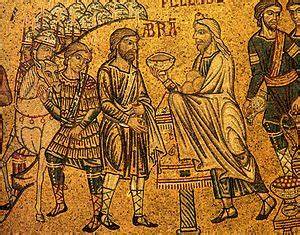
Abraham offered a tithe from the goods he captured in battle to Melchizedek. This shows that Abraham was operating in a pre-existing, though ill-defined, religious structure. Did missionaries from Melchizedek’s faith travel to Ur and convert Abraham?
Abraham’s God is not silent. Abraham also didn’t receive a complex system of theology from his God, but rather clearly-articulated tasks that he was required to obey. Abraham successfully followed these instructions. In the end, he had eight sons by three women. The third, Keturah, had six sons by Abraham. Keturah’s descendants entered the realm of legend. Most likely they either became or joined the Phoenicians and the Midianites. Hagar’s son Ishmael is said to have been the forefather of the Arabs.
If Keturah’s sons either joined or fathered the Phoenicians, and if Hagar’s son was indeed the Arabs’ forefather, then it is certain that Abraham’s descendants were blessed in that all those nations have been successful. The Phoenicians set up major settlements across the western Mediterranean. Lisbon, the capital of Portugal, was founded by the Phoenicians, for example.

The success of the Phoenicians might indicate a blessing from Divine Providence upon them. Phoenician influence upon Western civilization is enormous.
Abraham blessed his son Isaac on his death bed. Isaac in turn blessed his son Jacob (all while Jacob is tricking Isaac), and then Jacob blessed all his 12 sons. It is theologically questionable whether God’s blessing could be passed from father to son, however. The blessings between a father and a son are between moral men, not between God and man. It is also curious that Abraham and Isaac could only bless one son, while Jacob’s blessing applied to all his sons. It is far more likely that the original blessing from God was more generally applied to all of Abraham’s descendants, including those of Keturah who settled across the Mediterranean world. That blessing would be automatic and would not require a deathbed blessing from father to son.
Regardless, Abraham’s religion was not modern Judaism, although modern Judaism is descended from Abraham’s faith. Additionally, most of Abraham’s descendants aren’t the modern Jews, nor are they descended from Isaac.
Abraham’s grandson is Jacob. Jacob’s name was changed to Israel after he wrestled with God overnight. Jacob’s Israelite descendants were enslaved in Egypt. Moses, who was possibly a priest from Egypt’s short-lived experiment with monotheism, organized the Israelites, applied his theological ideas to Abraham’s God, and led them to Canaan, where they ethnically cleansed the Canaanites who were living in strategic areas such as Jericho.
The Israelites practiced a religion based on Mosaic law. Modern Judaism is descended from the Israelite religion, but it is not the same thing as Moses’ Israelite faith. Likewise, modern Jews are descended from the Israelites, but not all descendants of the Israelites are modern Jews.
Jews don’t actually appear in the Bible until the books of Ezra and Nehemiah. Ezra and Nehemiah established a religion based on descent from those of the Kingdom of Judea’s upper class who were taken into captivity when Babylon conquered Jerusalem. After the Babylonian Captivity, the religion of Judaism made its final break from the rest of the Israelite faith.
The last event in the Old Testiment took place around 400 BC, while the first event in the New Testiment is the conception of John the Baptist in the Gospel of Luke, which possibly occurred around 6 BC. During the four centuries in between, the language of Galilee became Aramaic, and the lingua franca of the wider region became Greek. The Jewish community also divided between Hellenized Jews and extreme ethnonationalist Jews. The ethnonationalists were at one point led by a group called the Maccabees, who staged a revolt that gave them control over Jerusalem and its immediate surroundings.
When Jesus Christ was born, Judea was part of the Roman Empire and ruled by a client king, Herod the Great. Caesar Augustus was the Roman Emperor. The dispute between the Hellenized Jews and the ethnonationalists continued to simmer, although it was suppressed by Roman law and order.
During the life of Christ, the ethnonationalist Jews began to shift the foundations of their religious morality from the law and prophets of the Old Testament to that of rabbinical law, which primarily consists of hairsplitting and hypocrisy. There are other problems in it as well. For example, what exactly constitutes “rest” on the Sabbath? Any fanatic could make trouble in Judea by declaring that this or that thing was against Jewish law.
Notes
[1] In this essay I am explaining theological concepts in as simple terms as possible. For greater theological detail, read the books listed in the bibliography, the Bible, or follow the links. I am also leaving out Premillennialism, which is normally associated with Dispensationalism. The two concepts are separate theological systems, however.
[2] Walter Russell Mead wrote about the English-speaking world’s constant religious churning in his excellent book, God and Gold: “The peculiar religious evolution of the Anglosphere doesn’t seem to have happened as the result of any grand plan. When Henry VIII overthrew the pope and had himself declared the head of the Church of England, no one envisioned the change that actually occurred; almost certainly all of the major actors in the English Reformation would have been bitterly disappointed in the outcome. Perhaps Cranmer had a sense of this when he penned the preface to the Book of Common Prayer; the success of the English Reformation lay in the failure of everyone who tried to lead it into a safe harbor.”
[3] Christians who disagree with Scofield often point to the man’s divorce as a moral failing. It is always easy to throw stones at a divorced man who later becomes a minister. But there is a lesson in Cyrus Scofield’s two marriages. The first was to a woman who was of a different ethnicity: an old-stock French-American. Cyrus was a Michigan Yankee. His second marriage was to a woman who was also a Michigan Yankee, with some German ancestry. As one gets older one’s identity and heritage start to matter more, and in a marriage this becomes critical. Marry someone as close to your background as possible — even to the point of finding a mate who comes from a region close to where your family is from.
Theology%20Matters%3A%0AWhy%20Dispensationalism%20Is%20Not%20Christian%20andamp%3B%20Is%20Bad%20for%20White%20Americans%2C%0APart%201%0A
Share
Enjoyed this article?
Be the first to leave a tip in the jar!
* * *
Counter-Currents has extended special privileges to those who donate at least $10/month or $120/year.
- Donors will have immediate access to all Counter-Currents posts. Everyone else will find that one post a day, five posts a week will be behind a “paywall” and will be available to the general public after 30 days. Naturally, we do not grant permission to other websites to repost paywall content before 30 days have passed.
- Paywall member comments will appear immediately instead of waiting in a moderation queue. (People who abuse this privilege will lose it.)
- Paywall members have the option of editing their comments.
- Paywall members get an Badge badge on their comments.
- Paywall members can “like” comments.
- Paywall members can “commission” a yearly article from Counter-Currents. Just send a question that you’d like to have discussed to [email protected]. (Obviously, the topics must be suitable to Counter-Currents and its broader project, as well as the interests and expertise of our writers.)
To get full access to all content behind the paywall, please visit our redesigned Paywall page.
Related
-
True Christian Nationalism
-
Notes on Plato’s Gorgias, Part 13
-
Adolph Schalk’s The Germans, Part 2
-
Adolph Schalk’s The Germans, Part 1
-
Virginia Is Where America was Born
-
Nowa Prawica przeciw Starej Prawicy, Rozdział 15: Ten dawny liberalizm
-
Notes on Plato’s Gorgias, Part 12
-
Notes on Plato’s Gorgias, Part 11
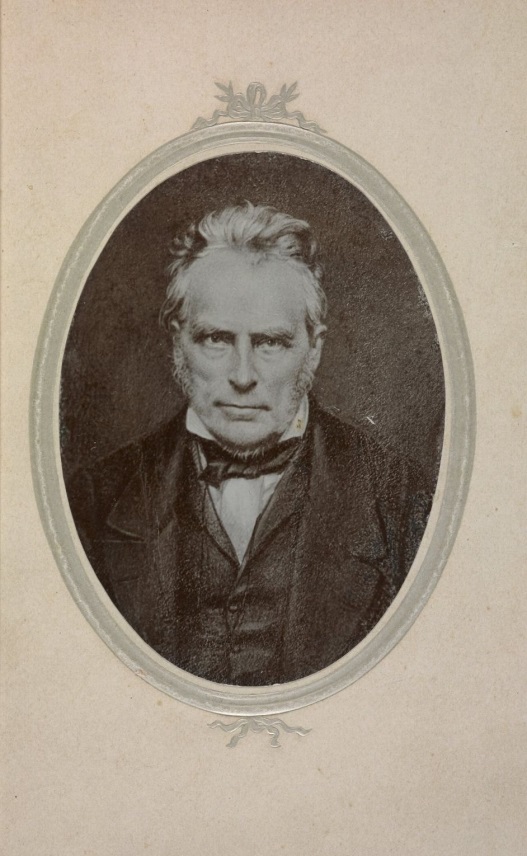
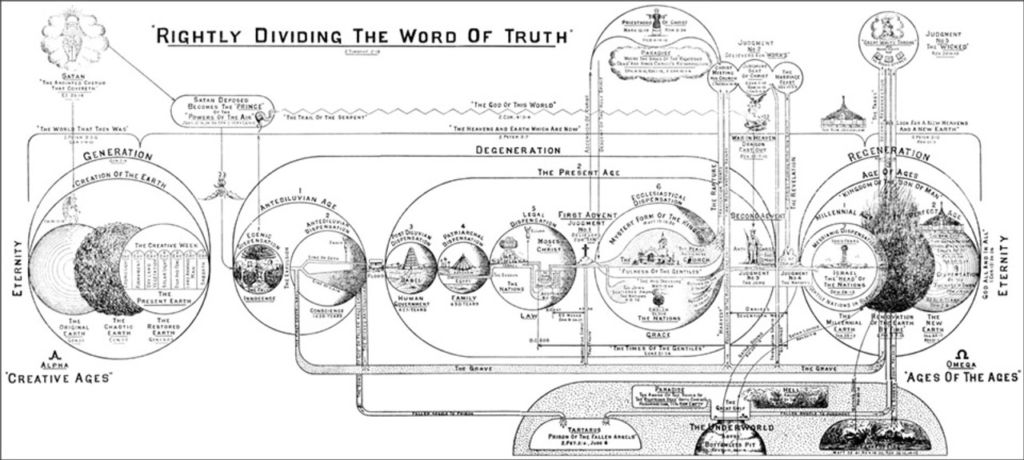
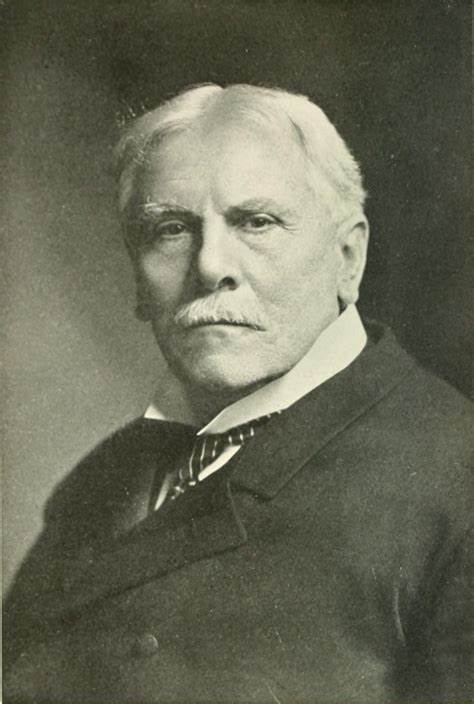
3 comments
A divine blessing on our rivals the Arabs doesn’t help us. What are we Whites in this story other than a species of weeds fit to be heaped on a convenient fire? Is the best we can do in this story to achieve individual (not racial) blessings by blessing every domineering Jewish act and by cursing and smiting everyone who speaks ill of a Jew?
Aleister Crowley was raised in a Plymouth Brethren household, I believe.
If this isn’t going too far afield, there’s a Muslim perspective about it. The Koran says that Allah sent prophets to all nations, some known to history but mostly unknown. In that case, it’s rather silly to believe that one and only one nation has a favored relationship to God. Furthermore, the Koran disputes the deathbed blessing story of Jacob and Esau. I’d have to say that makes sense; it’s possible to trick a blind old man, but an omniscient deity isn’t going to along with blatant fraud.
Comments are closed.
If you have Paywall access,
simply login first to see your comment auto-approved.
Note on comments privacy & moderation
Your email is never published nor shared.
Comments are moderated. If you don't see your comment, please be patient. If approved, it will appear here soon. Do not post your comment a second time.